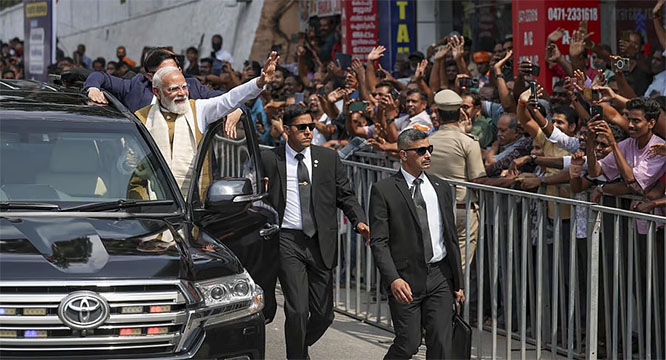
Chennai, April 14: Joining her West Bengal counterpart Mamata Banerjee, Tamil Nadu chief minister J Jayalalithaa today attacked the Centre for its "arbitrary" action in reducing Central Sales Tax (CST) compensation to states by linking it with VAT rate revision.
Though the Centre had agreed to compensate states for the revenue loss for 2010-11 also, the eligible compensation was "arbitrarily restricted" by deducting additional revenue realised through revision of VAT rate from four to five per cent, she said in a letter to Prime Minister Manmohan Singh.
"I would like to point out that the action of the Government of India in linking CST compensation with the additional revenue on account of VAT rate revision is unilateral, arbitrary and untenable. There is no link between CST rate reduction and VAT rate enhancement. It was never a part of the guidelines for CST compensation," she said.
Mamata had shot off a letter to Singh on Wednesday protesting the Centre's "unilateral decision" not to pay CST compensation to states for 2011-12.
The decision to stop CST compensation for 2011-12 "is equally objectionable", Jayalalithaa said, adding the CST rate was reduced only as a precursor to the introduction of Goods and Service Tax (GST).
"Since it is the government of India's responsibility to introduce GST by evolving a consensus and by putting in place appropriate mechanisms, the States cannot be expected to bear the loss on account of its failure to introduce GST. The Government of India has a moral responsibility to compensate the States till GST is introduced," she said.
Non-implementation of GST from April 1, 2010, should not be taken as ground to stop CST compensation and the Centre has to provide compensation till GST is introduced as revenue loss suffered by states is substantial and permanent, she said.
The chief minister said though the Centre had agreed to compensate states for revenue loss for 2010-11 also, the eligible compensation for 2010-11 was "arbitrarily" restricted by deducting additional revenue realised through revision of Value Added Tax rate from four per cent to five per cent.
" ... the action of the Government of India in linking CST compensation with the additional revenue on account of VAT rate revision is unilateral, arbitrary and untenable. There is no link between CST rate reduction and VAT rate enhancement. It was never a part of the guidelines for CST compensation," Jayalalithaa said.
Secondly, she said, the decision to stop CST compensation from 2011-12 is "equally objectionable".
Noting that states like Tamil Nadu suffer huge revenue loss on account of CST rate reduction, Jayalalithaa said Tamil Nadu could have realised an additional revenue of Rs 2,000 crore between 2007-08 and 2010-11, even after taking into account the Centre's compensation.
This tax loss pushed back the revenue base to a lower level and the state continues to suffer incremental revenue loss which is in the range of Rs 1,500 crore to Rs 2,000 crore per annum in the next three years, she said.
"I must also point out that such unilateral and unreasonable actions by the Government of India do not augur well for fostering a spirit of cooperative federalism especially at a time when the Government of India is trying to build a consensus among the states for GST," she said.
She said revision of VAT rate from four per cent to five per cent should not be linked to the CST compensation for 2010-11 as it was not part of the original compensation package and the VAT revision had nothing to do with the CST.
"If further delay is expected in implementing GST, then the CST rate must be restored immediately to the original four per cent," Jayalalithaa said.






Comments
Add new comment